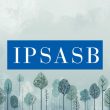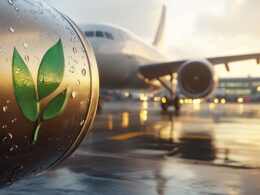The International Air Transport Association (IATA) has officially launched its Sustainable Aviation Fuel (SAF) Registry, now under the management of the Civil Aviation Decarbonization Organization (CADO), marking a major step towards the sector’s net zero emissions goal by 2050.
The Registry, which is now live, provides a global platform for the transparent and standardised tracking of SAF transactions. By recording the environmental attributes of SAF in a secure and immutable manner, the system ensures that emissions reductions are properly accounted for and safeguarded against double counting.
According to IATA, the Registry will allow airlines, fuel producers, regulators, corporate customers, and other stakeholders to document SAF purchases and link them to climate-related obligations or voluntary decarbonisation schemes. The platform is expected to foster a global market for SAF by enabling access and traceability across geographical boundaries—bridging the gap between limited supply and growing demand.
“This is a historic advance, providing a critical tool for all stakeholders in aviation’s climate journey,” said Marie Owens Thomsen, IATA’s Senior Vice President Sustainability and Chief Economist. “It ensures all airlines, regardless of location, can claim SAF purchases accurately against climate targets. But the Registry is only one part of the solution—further progress depends on policy support to scale up renewable energy production, including SAF.”
IATA has called on governments to redirect subsidies currently allocated to fossil fuels towards renewables, citing the wind and solar sectors as examples of successful policy-driven growth.
About the SAF registry
The SAF Registry is designed to support the development of a liquid and transparent global SAF market. It is technology- and feedstock-neutral, supporting a variety of SAF production methods and ensuring flexibility to adapt to regional regulatory requirements while promoting global harmonisation.
The Registry helps overcome the issue of geographically concentrated SAF supply by allowing airlines to access SAF attributes even when physical fuel delivery is not feasible. It also facilitates corporate co-financing of SAF purchases, enabling firms to claim in-sector emissions reductions as part of their sustainability strategies.
Developed in collaboration with airlines, government agencies, fuel producers, aircraft manufacturers, and travel management firms, the Registry is underpinned by IATA’s SAF Accounting and Reporting Methodology, ensuring a consistent approach to environmental claims.
Over 30 early users are currently onboarding. Participation in the Registry will be free until April 2027, after which it will operate on a cost-recovery basis.
IATA says the platform lays the foundation for scaling SAF deployment globally while supporting transparency, market competition, and climate accountability within aviation.





















